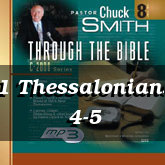"And now what hast thou to do in the way of Egypt, to drink the waters of Sihor?"
—Jeremiah 2:18
By sundry miracles, by divers mercies, by strange deliverances Jehovah had proved himself to be worthy of Israel's trust. Yet they broke down the hedges with which God had enclosed them as a sacred garden; they forsook their own true and living God, and followed after false gods. Constantly did the Lord reprove them for this infatuation, and our text contains one instance of God's expostulating with them, "What hast thou to do in the way of Egypt, to drink the waters of the muddy river?"-for so it may be translated. "Why dost thou wander afar and leave thine own cool stream from Lebanon? Why dost thou forsake Jerusalem to turn aside to Noph and to Tahapanes? Why art thou so strangely set on mischief, that thou canst not be content with the good and healthful, but wouldst follow after that which is evil and deceitful?" Is there not here a word of expostulation and warning to the Christian? O true believer, called by grace and washed in the precious blood of Jesus, thou hast tasted of better drink than the muddy river of this world's pleasure can give thee; thou hast had fellowship with Christ; thou hast obtained the joy of seeing Jesus, and leaning thine head upon his bosom. Do the trifles, the songs, the honours, the merriment of this earth content thee after that? Hast thou eaten the bread of angels, and canst thou live on husks? Good Rutherford once said, "I have tasted of Christ's own manna, and it hath put my mouth out of taste for the brown bread of this world's joys." Methinks it should be so with thee. If thou art wandering after the waters of Egypt, O return quickly to the one living fountain: the waters of Sihor may be sweet to the Egyptians, but they will prove only bitterness to thee. What hast thou to do with them? Jesus asks thee this question this evening-what wilt thou answer him?
Ⓒ 1996-2021 Heartlight, Inc. This material may not be reproduced in part or whole for commercial use without written consent. Written by Charles H. Spurgeon.

Continue reading...
—Jeremiah 2:18
Evening Thought
By sundry miracles, by divers mercies, by strange deliverances Jehovah had proved himself to be worthy of Israel's trust. Yet they broke down the hedges with which God had enclosed them as a sacred garden; they forsook their own true and living God, and followed after false gods. Constantly did the Lord reprove them for this infatuation, and our text contains one instance of God's expostulating with them, "What hast thou to do in the way of Egypt, to drink the waters of the muddy river?"-for so it may be translated. "Why dost thou wander afar and leave thine own cool stream from Lebanon? Why dost thou forsake Jerusalem to turn aside to Noph and to Tahapanes? Why art thou so strangely set on mischief, that thou canst not be content with the good and healthful, but wouldst follow after that which is evil and deceitful?" Is there not here a word of expostulation and warning to the Christian? O true believer, called by grace and washed in the precious blood of Jesus, thou hast tasted of better drink than the muddy river of this world's pleasure can give thee; thou hast had fellowship with Christ; thou hast obtained the joy of seeing Jesus, and leaning thine head upon his bosom. Do the trifles, the songs, the honours, the merriment of this earth content thee after that? Hast thou eaten the bread of angels, and canst thou live on husks? Good Rutherford once said, "I have tasted of Christ's own manna, and it hath put my mouth out of taste for the brown bread of this world's joys." Methinks it should be so with thee. If thou art wandering after the waters of Egypt, O return quickly to the one living fountain: the waters of Sihor may be sweet to the Egyptians, but they will prove only bitterness to thee. What hast thou to do with them? Jesus asks thee this question this evening-what wilt thou answer him?
Ⓒ 1996-2021 Heartlight, Inc. This material may not be reproduced in part or whole for commercial use without written consent. Written by Charles H. Spurgeon.
Continue reading...



 Let's join in prayer!
Let's join in prayer! 
 **Let's lift up these requests, everyone!**
**Let's lift up these requests, everyone!** 




